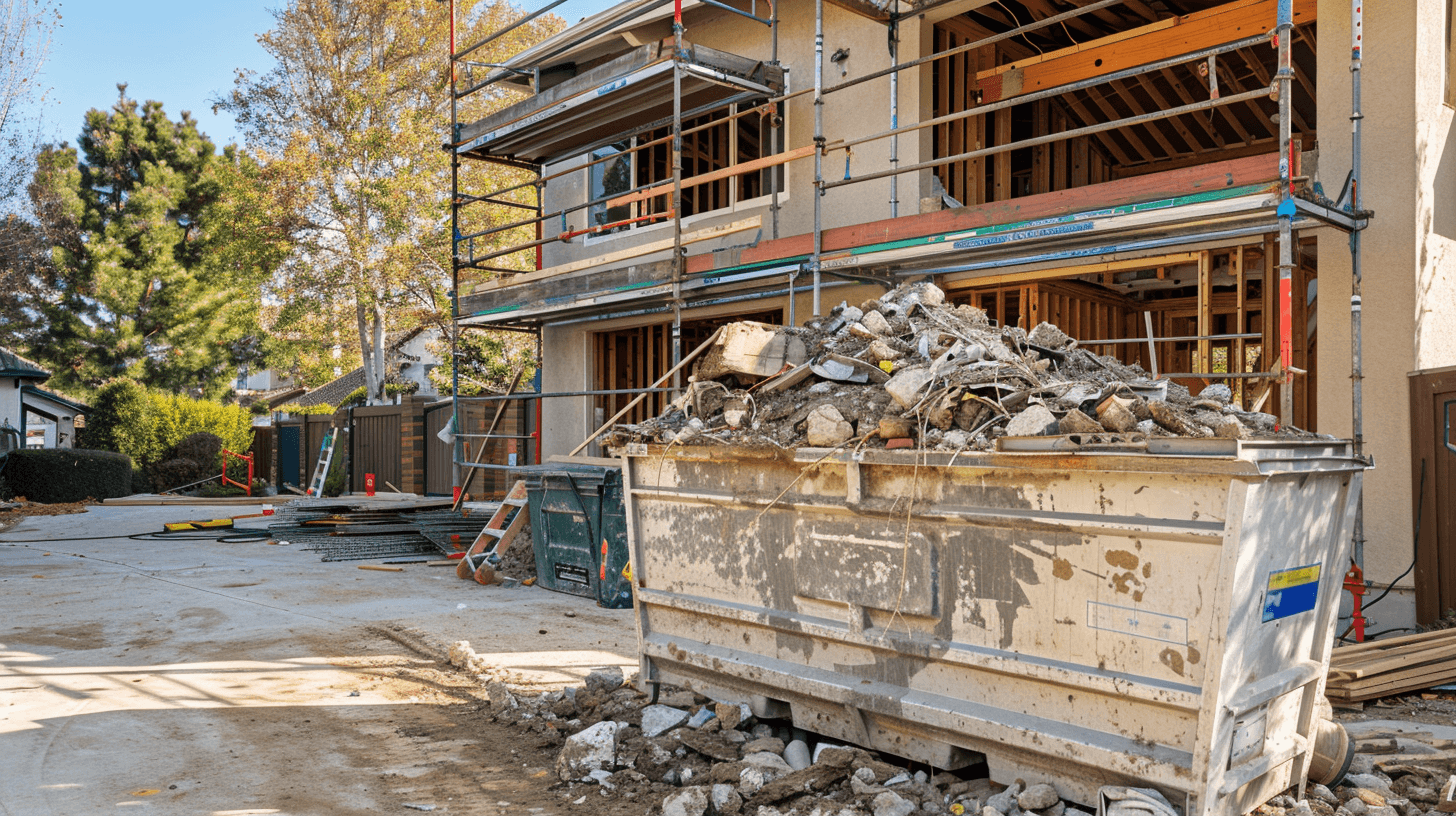In the spirit of a medieval knight embarking on a quest, we’re about to tackle the somewhat less romantic but equally challenging task of a home renovation.
Among the many practical considerations we’ll encounter, one that’s often overlooked is waste management. Have we considered renting a dumpster for our project? It’s not as daunting as it may seem, and could be the key to keeping our worksite clean and efficient.
But what size do we need, and what are the costs involved? Stay with us, we’re about to unravel this mystery.
Choosing the Right Dumpster Size
When tackling a home renovation, choosing the right dumpster size is crucial for efficient waste disposal. The size you’ll need will depend on the scope of your project. We’ve got some tips to help you make the right choice.
For small projects, like a bathroom remodel, consider a 10-yard dumpster rental. This size is compact yet can handle the waste generated by your renovation. When you’re upgrading your kitchen or undertaking a medium-sized renovation, a 20-yard dumpster can be your best bet. It offers more capacity and is ideal for disposing of old cabinets, counters, and flooring.
If you’re embarking on larger home renovation projects, such as a whole-house remodeling, a 30-yard dumpster should be selected. It’s spacious enough for all the debris you’ll generate. Finally, for extensive renovations or major construction work, we’d suggest opting for a 40-yard dumpster. It’s the largest size available and is perfect for significant waste disposal needs.
Choosing the right dumpster size ensures your project runs smoothly, and waste removal is hassle-free. So, before you swing that sledgehammer, make sure you’ve got the right dumpster for your home renovation project.
Understanding Rental Costs
Now that you’ve got the right dumpster size for your home renovation project, let’s break down the potential rental costs you can expect to encounter. If we take somewhere local for example and do some reasearch, Dumpster Rental Fairhope AL prices can range from $185 to $800, depending upon the dumpster sizes, materials, the rental period, and your location in the Houston area.
Here’s a quick breakdown of these factors:
| Factor | Influence on Price | Example |
|---|---|---|
| Size | Larger dumpsters cost more | 20-yard dumpster: ~$300-$400 |
| Material | Different materials may have different costs | Mixed waste may cost less than heavy materials |
| Rental Period | Longer rental periods = Higher price | Weekly rentals are cheaper than monthly |
| Location | Distance can affect delivery and pickup costs | Farther locations might incur additional costs |
To avoid unexpected costs, ensure you’re dealing with providers who offer transparent pricing. Hidden fees can add up and inflate your initial quote. Therefore, it’s wise to request a quote upfront to understand the full cost of your dumpster rental. This way, you can budget effectively for your home renovation project while keeping the rental costs under control.
Preparing for Dumpster Delivery
Before the dumpster’s arrival, it’s crucial to prepare your property to ensure a smooth delivery process. This starts with clearing the delivery spot of any obstacles. Whether it’s vehicles, debris, or even low-hanging tree branches, these things can pose challenges during the placement of the dumpster.
In Houston, waste management companies like ours that offer Dumpster Rentals highly recommend ensuring there’s ample space for the dumpster to be dropped off. Consider the dimensions of the dumpster and any potential overhead obstacles. Additionally, it’s essential to communicate any specific instructions or requirements for the delivery location to us in advance. This helps our service team prepare adequately for the rent process.
Make sure to confirm the accessibility of the delivery spot. Our truck needs a clear path to drop off the dumpster and avoid any delays or issues. By preparing for the delivery process with these steps, you’re not only making our job easier but also ensuring your renovation project can kick off without a hitch. Remember, a well-prepared placement site is key to a successful dumpster delivery.
Prohibited Items in Dumpsters
While it’s important to make the most of your rented dumpster, there are certain items you can’t dispose of due to safety and environmental regulations. Prohibited items can include a wide range of materials, from hazardous substances to certain forms of electronic waste.
Hazardous materials such as paint, oil, batteries, and chemicals are typically not allowed given the potential risks they pose. These materials require special handling to ensure safe disposal without harming the environment. Similarly, flammable liquids and asbestos-containing materials are also usually on the prohibited items list, due to the specific disposal restrictions needed for these substances.
Electronic waste, including items like TVs, computers, and appliances with circuit boards, are generally not allowed in rental dumpsters. Apart from being bulky, these items can contain hazardous substances that need specialized disposal methods.
It’s also worth noting that certain items, such as tires, appliances containing Freon, propane tanks, and medical waste, are usually forbidden.
To avoid any confusion or penalties, we recommend contacting your rental company for a detailed list of prohibited items. This will ensure compliance with all waste disposal regulations, helping you to make the most of your dumpster rental while also protecting our environment.
Maximizing Dumpster Use
To get the most out of your dumpster rental, it’s crucial to strategically organize and compact your waste materials. When we’re looking to maximize dumpster use, remember to sort and separate materials. This not only makes for efficient disposal but also promotes recycling, which is good for the environment.
Another key consideration is the weight limit. To avoid overloading and incurring extra charges, be mindful of how much you’re putting in your Houston dumpster rental.
Before you toss everything into the Roll Off Dumpster Rental, think about whether some items might be reusable. Consider donating or selling items that are still in good condition. Not only does this reduce waste, but it could also put a bit of cash back in your pocket.
